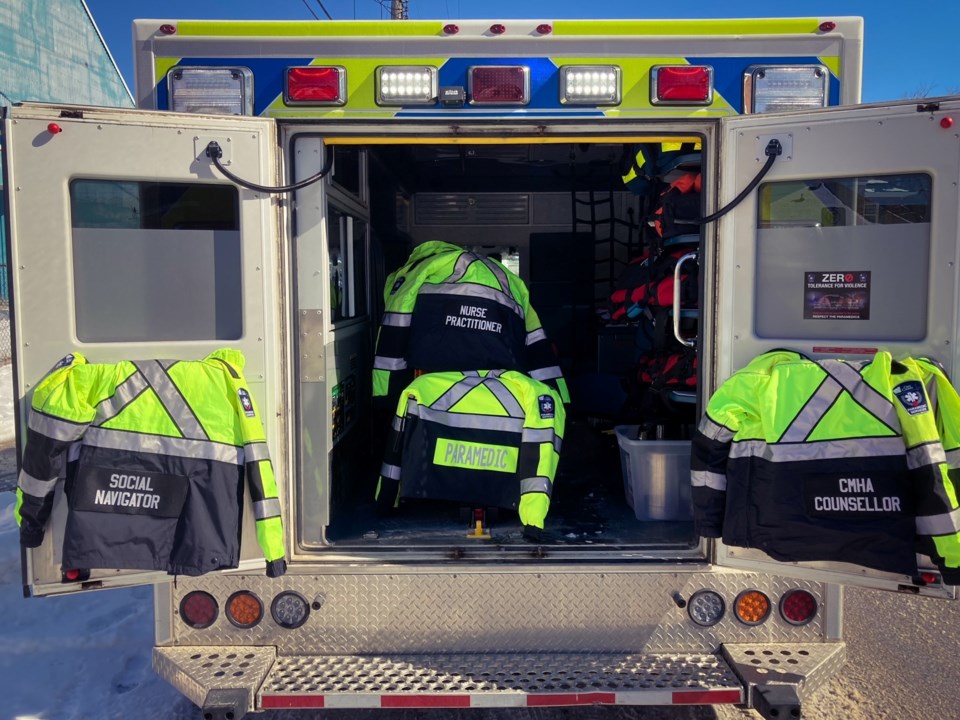Grey County continues to be hopeful that its successful Supportive Outreach Service (SOS) will one day be fully funded on a permanent basis.
Kevin McNab, the county’s director of paramedic services, paramedic Teresa Tibbo and Heather Prescott, a nurse practitioner with Grey Bruce Health Services made a presentation about SOS to county council at its meeting on July 28.
SOS is a mobile outreach program that helps marginalized members of the community access important services they need in order to improve their health. The program involves a number of local agencies and includes a community paramedic, nurse practitioner, two mental health counsellors and a social navigator.
The program formed after a number of organizations worked together to respond to a COVID-19 outbreak at a Hanover rooming housing during the pandemic. Following that outbreak, it was determined that a mobile outreach team should be formed to help provide services to individuals who would not otherwise have a way to access the help they need.
“SOS is a service where people are treated with dignity, respect and without judgment,” Tibbo told council.
Since being formed, the program has had 2,487 interactions and has assisted local people with accessing health care services, housing, mental health supports and many other programs.
McNab said the county receives $360,000 in funding from Ontario Health West for the program, which covers about 70 per cent of the costs of SOS this year.
The county has also earmarked funding for SOS through the Cannabis Legalization Implementation Funding, Safe Restart funding and from the Hanover Family Health Team.
“We continue to look for 100 per cent of the cost. We feel this should be 100 per cent funded,” said McNab.
In an email, Grey County communications officer Katrina Peredun said the goal is to have the program fully funded on a permanent basis.
“For next year, we will ask for consideration in our operating budget for the remaining funding. Our long-term goal is to have the program be 100 per cent funded as a health initiative,” said Peredun. “We’re very thankful for the support we’ve had to date – Ontario Health West has been a wonderful resource and we are continuing to have meaningful conversations with them as to how to best achieve this goal.”
Prescott told council the mobility of SOS is the key to the program being successful.
“The people we work with are not coming to traditional healthcare. We have to go out and find them. Every day we’re out looking. That’s the beauty of this team,” she said. “Our goal is to build trust and move individuals to more traditional means of service.”
Prescott said the program’s data shows that three quarters of the individuals they work with are returning to SOS two or more times.
“It shows us building trust,” she said.
After the presentation, Warden Brian Milne said those involved with SOS should be proud of their initiative.
“It’s a very compelling story. One indicator of how good a community is, is how they support the disadvantaged,” said Milne.
Meaford Mayor Ross Kenter praised the efforts of everybody involved with SOS.
“This is a made-in-Grey solution. Without it, a lot of people would be falling through the cracks,” he said.


